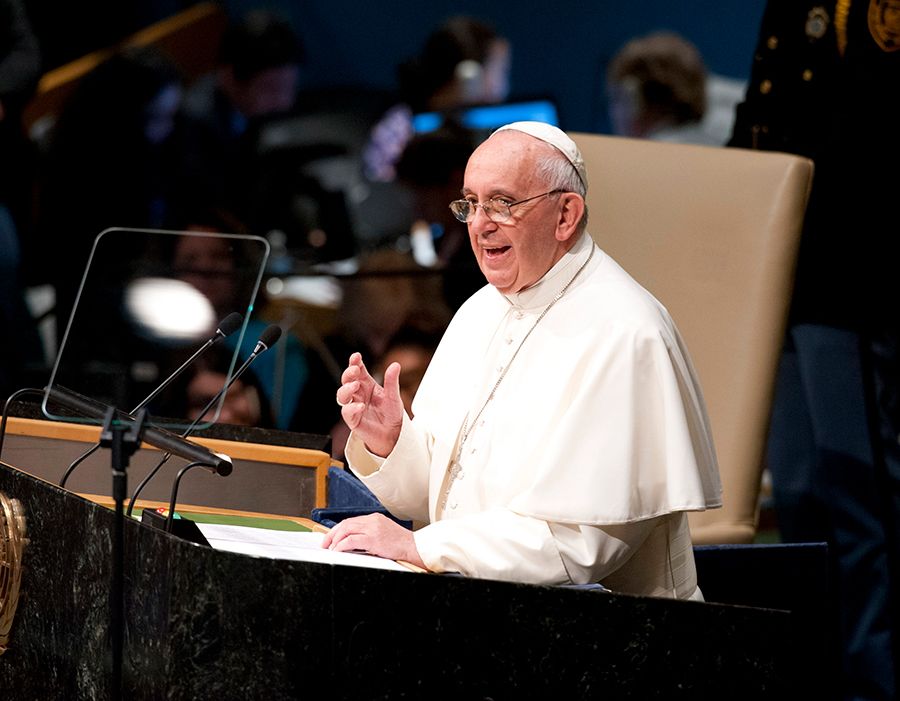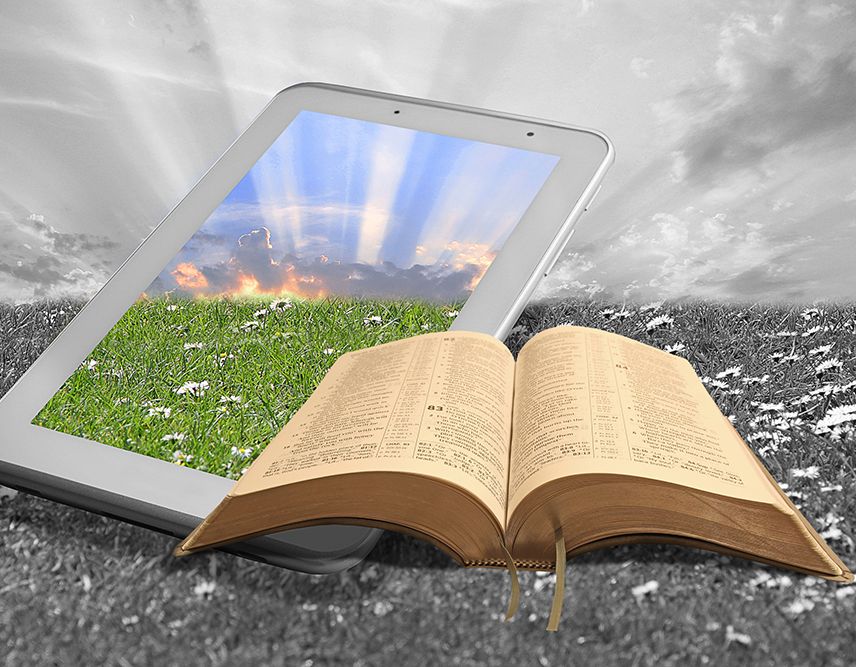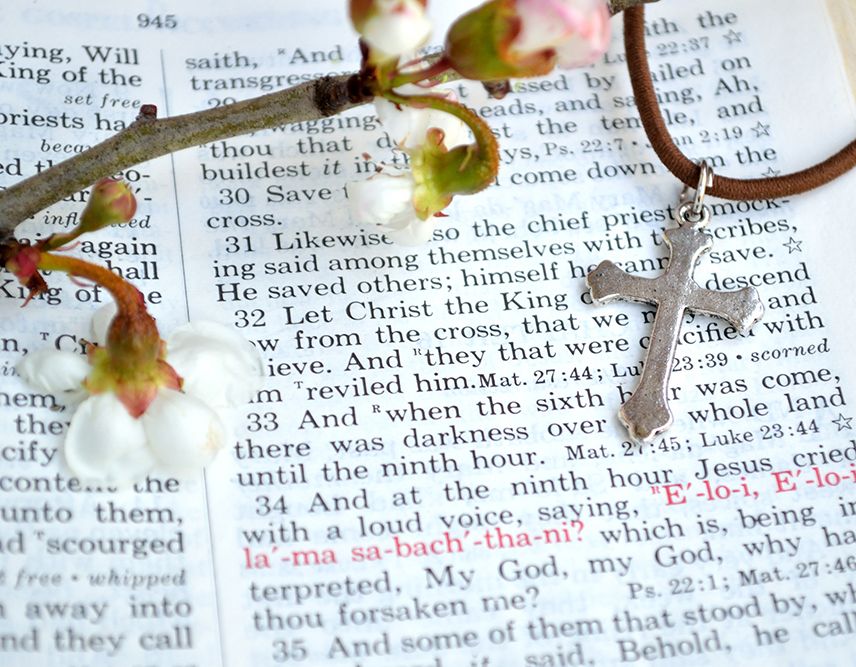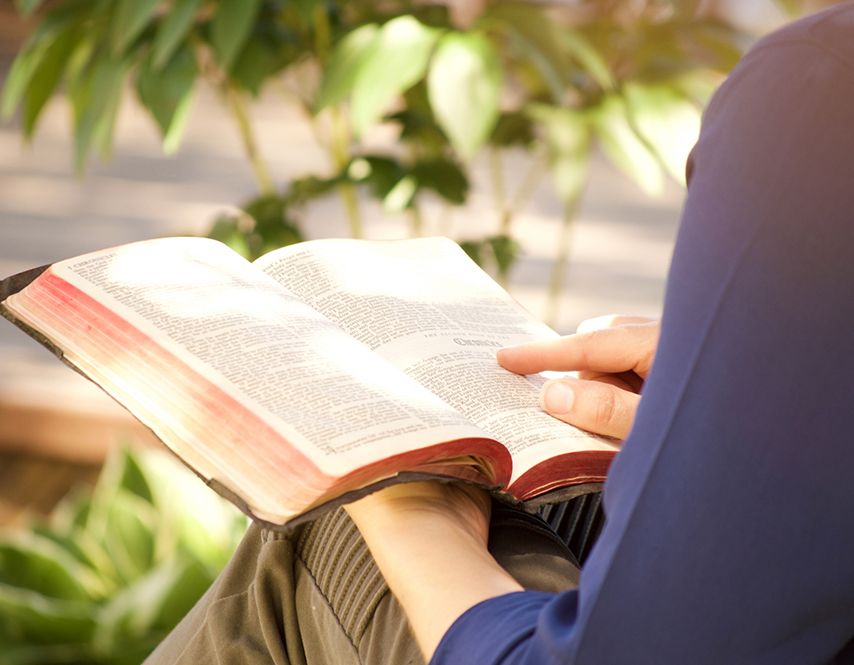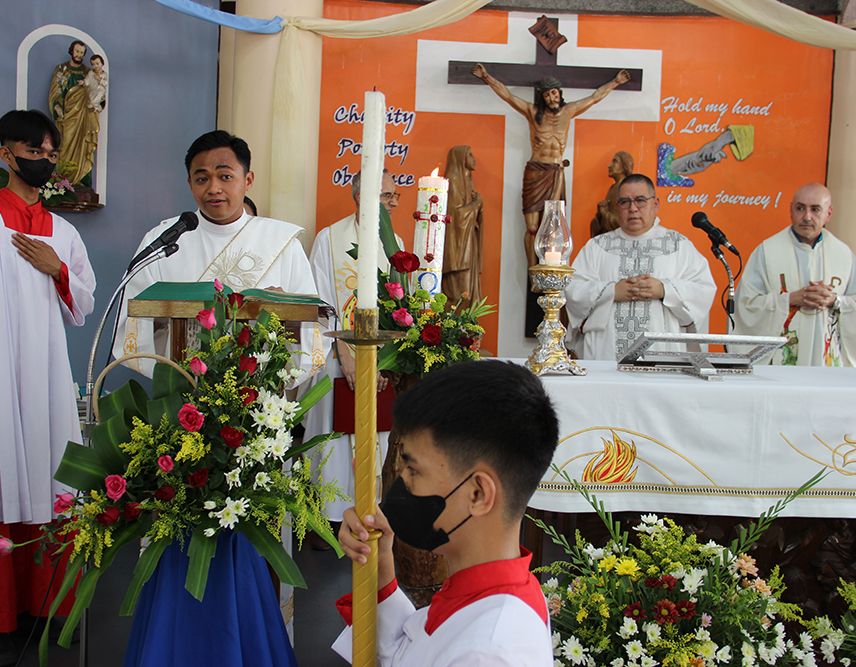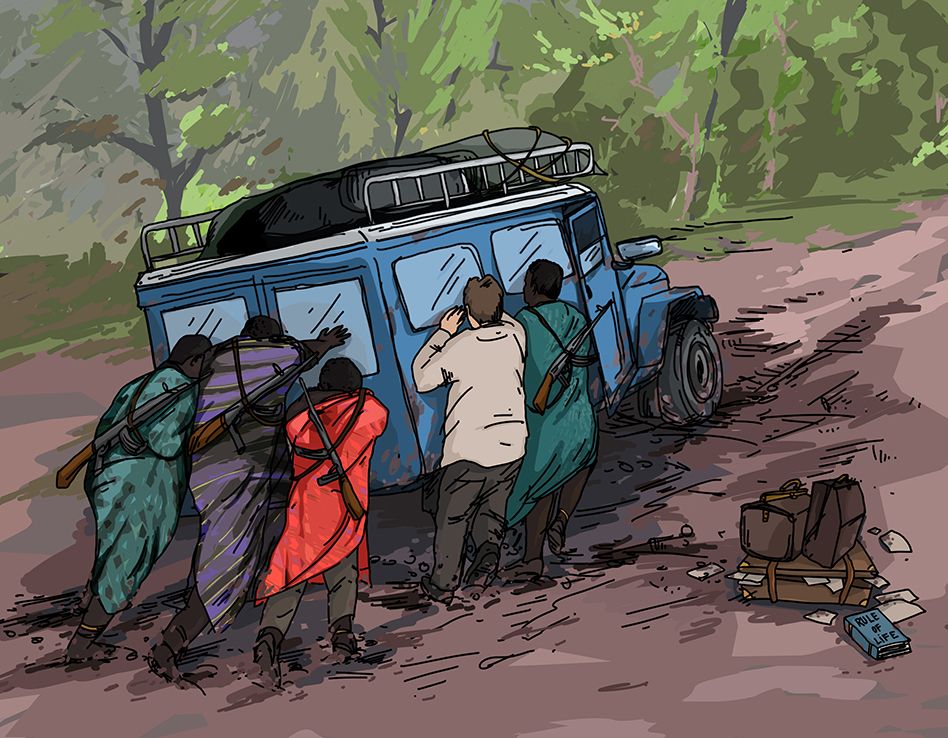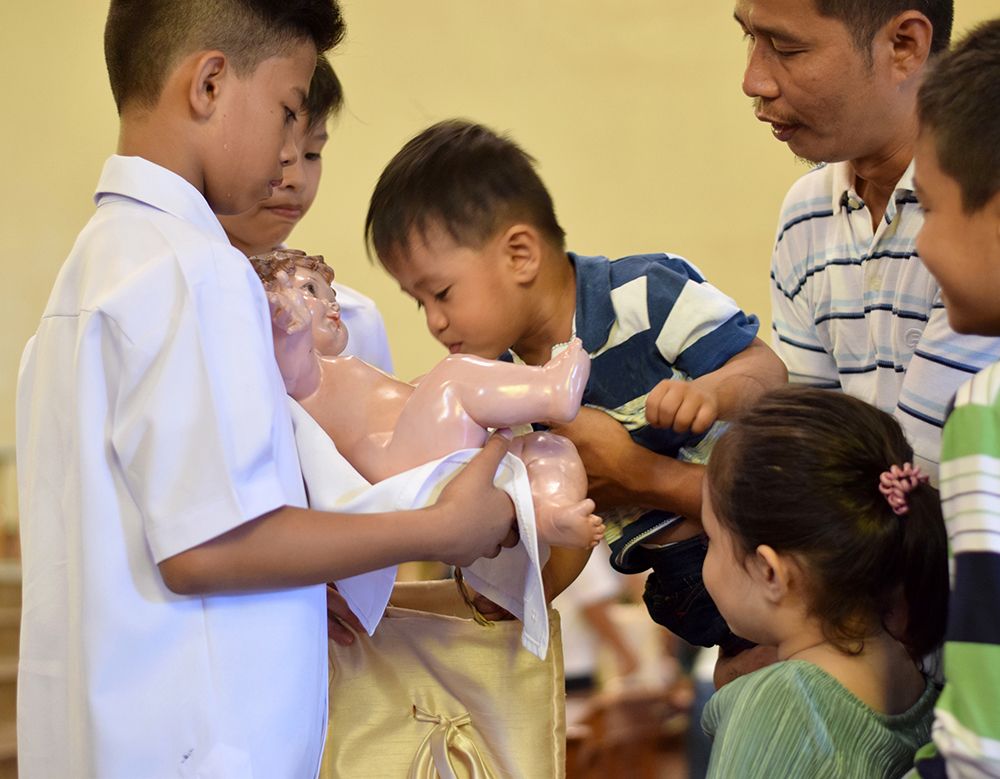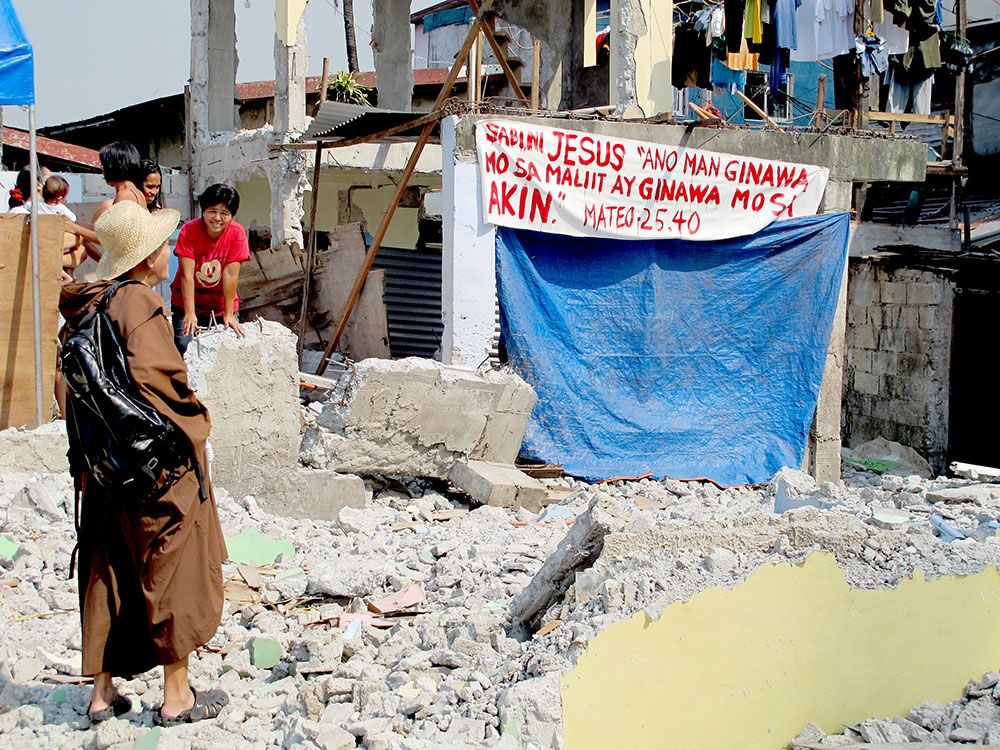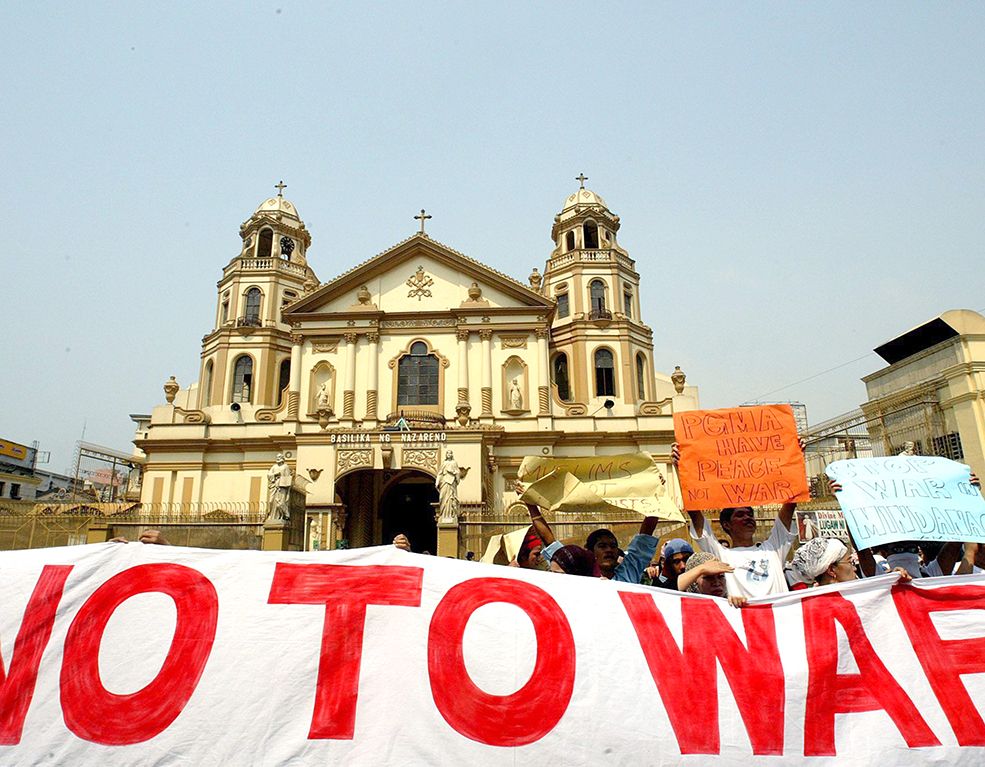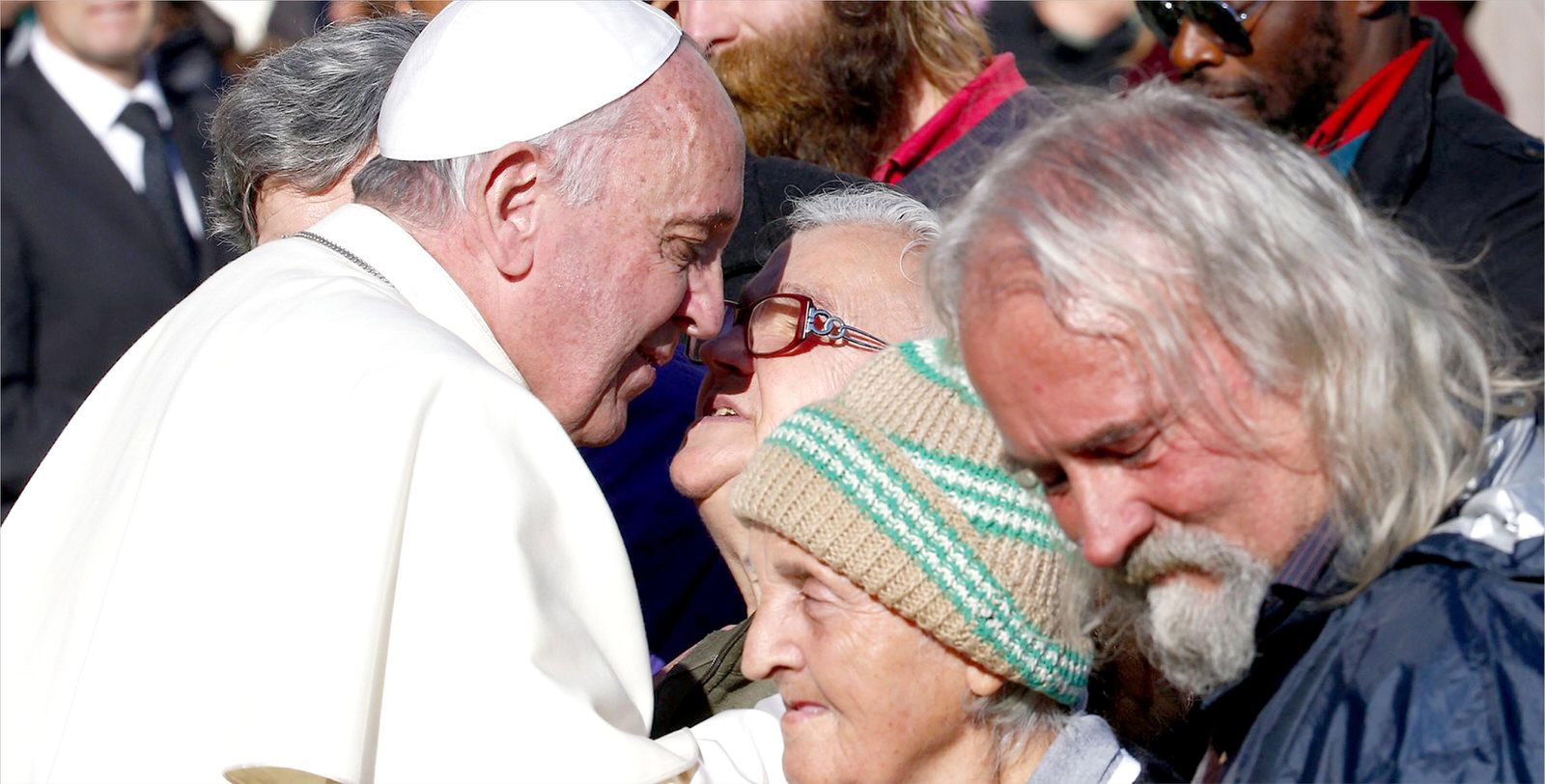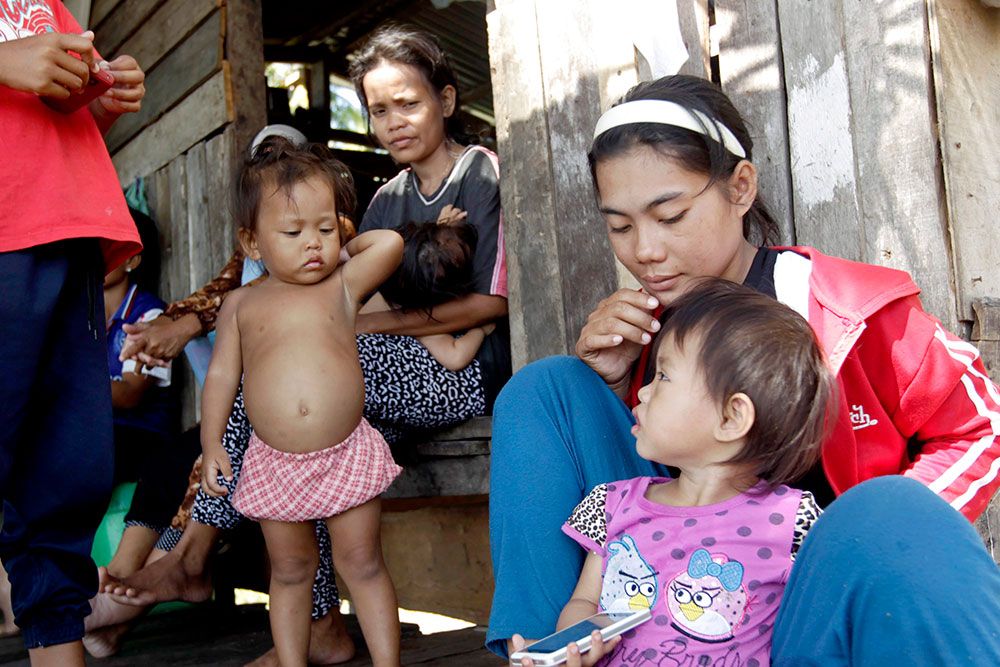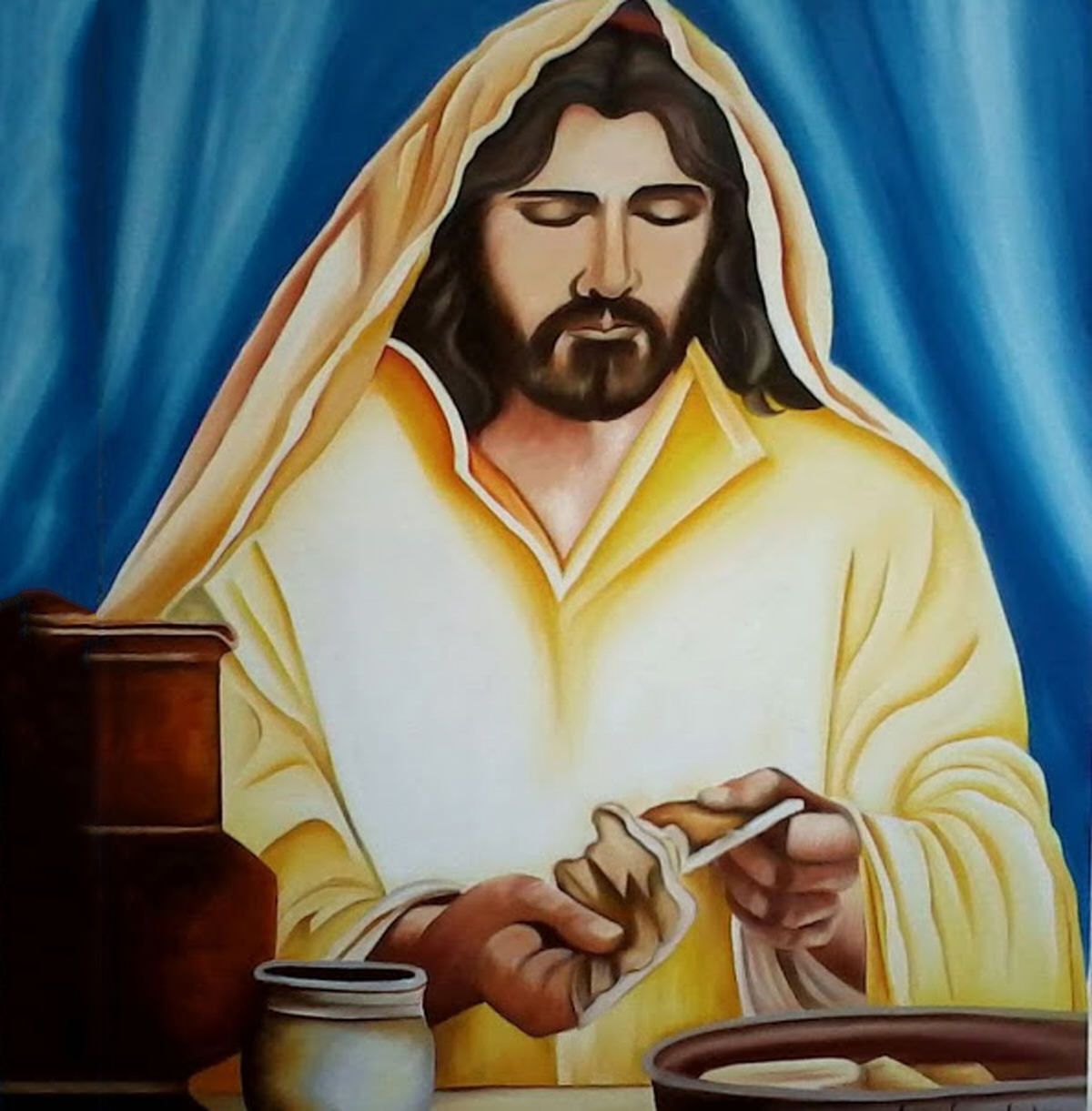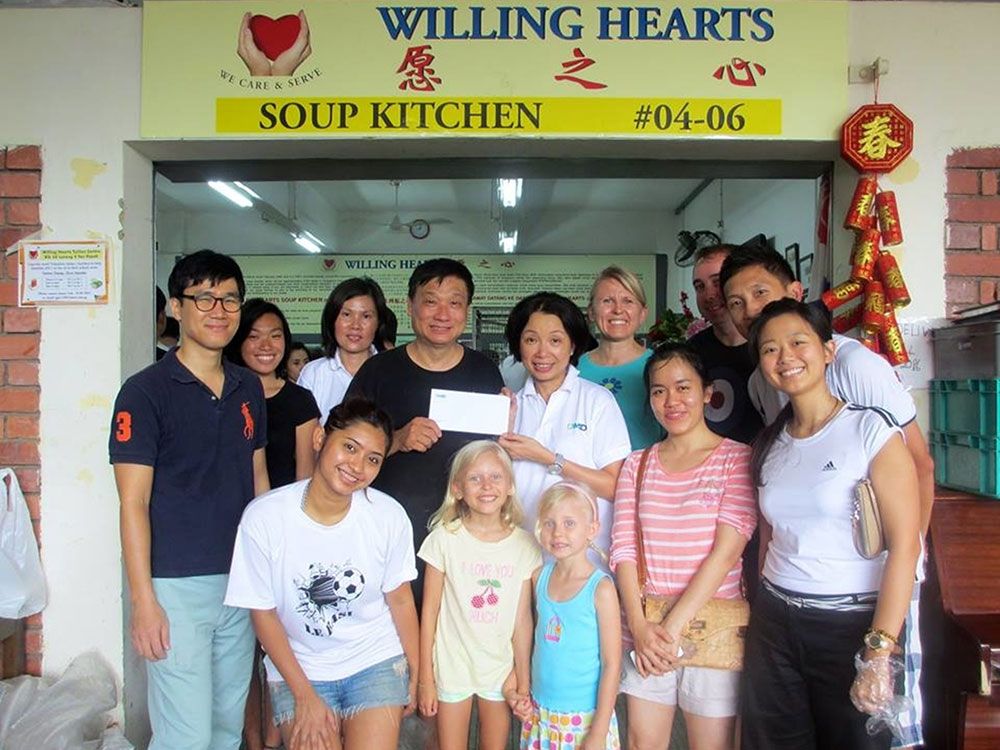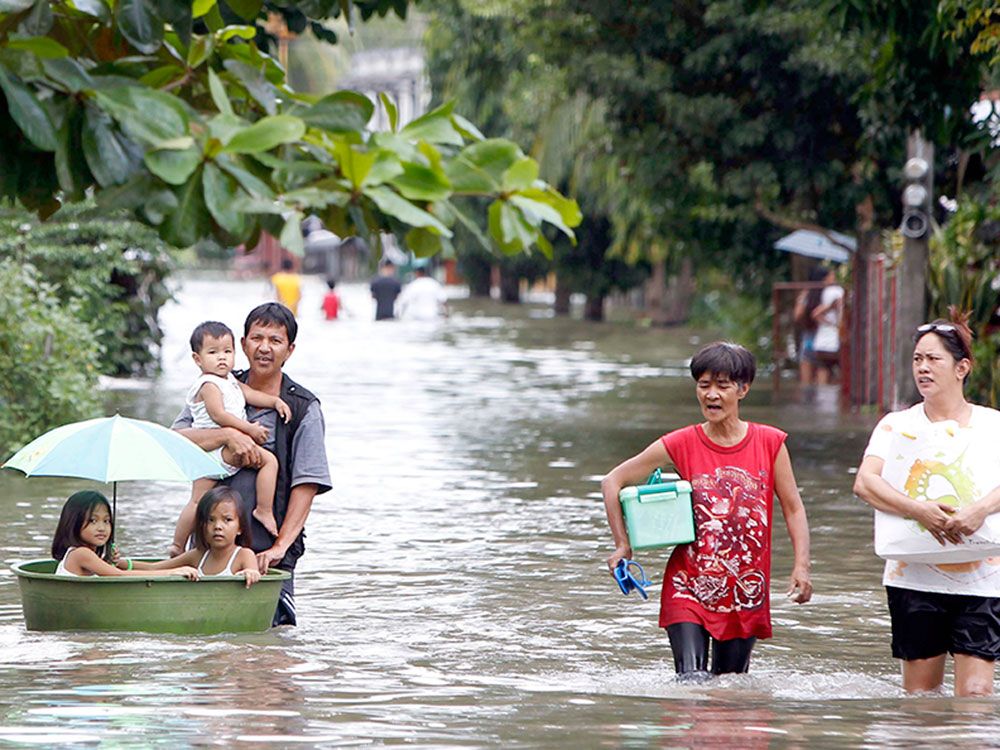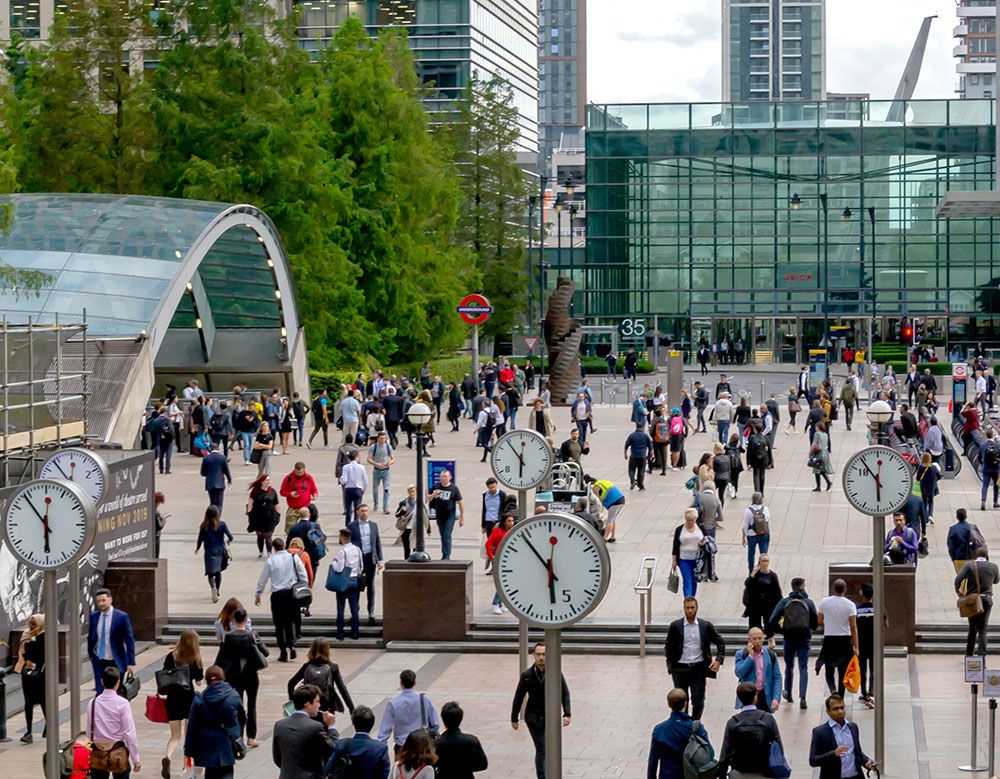Three days after his election, in an audience with media representatives, Francis, a Jesuit, explained why he selected the name of the 13th-century saint and composer of “The Canticle of the Creatures,” St. Francis of Assisi: “For me, he is the man of poverty, the man of peace, the man who loves and protects creation; these days we do not have a very good relationship with creation, do we?” the new pope said.
From that starting point, Francis has pressed forward. He has woven environmental matters into his letters, addresses, and audiences, speaking about the vocation to protect the entire created world; critiquing throwaway culture, where food is wasted while people starve; and championing universal access to food and water. Like his predecessors, he has observed environmentally-themed days and delivered remarks to U.N. gatherings.
Those teachings and more were encapsulated in Laudato Sí. The first solo encyclical of his papacy, it was also the first papal letter devoted to ecology and humanity’s role within the whole of creation.
Addressing the document to “every person living on this planet,” he decried that the planetary home was becoming “an immense pile of filth.” He linked the cry of the Earth with the cry of the poor, stated “the climate is a common good,” and challenged social structures and political systems to imagine a new harmony with nature, replacing a dominating mentality that for more than a century has driven industrial growth.
Things Can Change
“The urgent challenge to protect our common home includes a concern to bring the whole human family together to seek sustainable and integral development, for we know that things can change,” he wrote.
The document was heralded both inside and outside the church, by other faith denominations, and by scientists who affirmed the text got the science right, particularly on climate change. Before and after publication, it also drew fierce criticism from the right, with some conservatives calling Francis an anti-modern Marxist and the “Red Pope.”
While the pope’s voice amplified environmental concerns worldwide, Francis also took steps to instill care for creation as essential to Christian life. He designated Sept. 1 as the World Day of Prayer for the Care of Creation and encouraged Catholics to celebrate the ecumenical Season of Creation, beginning that day and extending to Oct. 4, the feast of St. Francis of Assisi.
In 2016, Francis endorsed adding “care for our common home” to both the corporal and spiritual works of mercy. He later said that ecological sin would be added to the Catechism of the Catholic Church. And in May 2021, he unveiled the Laudato Sí Action Platform, an ambitious multiyear initiative to mobilize Catholic institutions to act on the themes laid out in the encyclical. In December 2020, he set a goal for the Vatican City State to become carbon-neutral no later than 2050.
More Proactive Church
Rodne Galicha, executive director of Living Laudato Sí Philippines, said that in his country, nearly 80% Catholic, the church at all levels has become “more visibly proactive” in addressing ecological concerns, with the Philippine bishops issuing two pastoral letters on ecological citizenship and the climate emergency.
“There has been a higher awareness among Filipino Catholics in sustainable living and caring for life … We have observed more individuals and communities conduct campaigns and initiatives on ecological education, fossil fuel divestment, food self-sufficiency, climate action, and upholding human rights and dignity grounded on Catholic social teachings, such as the Laudato Sí,” Galicha told EarthBeat.
In the eight years since the Paris Agreement (2015) was adopted, Francis has continued to engage the international climate arena, pressing countries to live up to their decarbonization pledges, especially after the top U.N. climate science body reported that the world was on track to eclipse 1.5 degrees of warming as soon as the 2030s.
Iyad Abumoghli, director of the Faith for Earth Initiative of the U.N. Environment Programme, said that Francis has been an environmental leader among religions, with Muslim scholars developing an Islamic complement to Laudato Sí, a document he called “revolutionary.” Abumoghli credited the pope with “bringing back the spiritual aspect of the relationship between humans and the environment,” which had long gone ignored.
“It was only when Pope Francis brought it back to life in 2015 that the international community started taking this relationship seriously,” he told EarthBeat. Francis has raised ecological concerns in TED talks and Earth Day messages, and met with young climate leaders like Greta Thunberg and Vanessa Nakate. He participated in President Joe Biden’s two-day climate leaders summit and stated the importance of achieving the Paris climate goals in meetings with world leaders at the Vatican and during papal trips.
He also met with the primary source of planet-warming emissions, the fossil fuel industry. In two meetings at the Vatican, Francis invited executives of the world’s largest oil and gas companies into dialogue about a global energy transition to renewable sources, telling them that “time is running out” and “civilization requires energy, but energy use must not destroy civilization.”
Support For The ‘Lungs Of Our Planet’
With his recent overseas trip on Jan. 31-Feb. 5, Francis has now visited both the Amazon rainforest and Congo River Basin, what he described in Laudato Sí as “those richly biodiverse lungs of our planet.”
With his first address in the Democratic Republic of Congo, Francis condemned exploitation of the country and its natural resources, including for emerging green technologies. “Hands off Africa!” he declared. “Stop choking Africa! It is not a mine to be stripped or a terrain to be plundered.”
It was a moment that “Congolese women and men were waiting for,” said Jesuit Fr. Jacques Nzumbu, a Congolese priest and specialist in conflict minerals and renewable energy technology. He credited the pope for connecting the nearly 30-year war in the country with the fight for conflict minerals like copper and cobalt used in smartphones, computers, and batteries.
‘Holy Ground’
Francis, a pope from the Global South and the first from South America, delivered a similar refutation of exploitative mining and extractive practices during his January 2018 visit to the small city of Puerto Maldonado in Peru’s Amazon Rainforest, where he met with thousands of Indigenous people, telling them, “The place on which you are standing is holy ground.”
“Great business interests want to lay hands on [the Amazon’s] petroleum, gas, lumber, [and] gold,” the pope told them. “The native Amazonian peoples have probably never been so threatened on their own lands as they are at present.” He continued, “Amazonia is not only a reserve of biodiversity but also a cultural reserve that must be preserved in the face of the new forms of colonialism.”
A year after his visit to Puerto Maldonado, Francis held the Amazon synod at the Vatican, bringing together nearly 200 bishops to examine threats to the globally critical biome and its people and to chart a path forward to reverse their destruction. Francis followed up that month-long gathering with his apostolic exhortation Querida Amazonia, where he called harm of the Amazon and its Indigenous caretakers caused by businesses “injustice and crime.”
“We must say it. He has supported us in our fight,” said Patricia Gualinga, a Kichwa leader in Amazonian Ecuador and the first Indigenous representative to the Ecclesial Conference of the Amazon.
What began in Puerto Maldonado has now spread to other corners of the church through its influence on the ongoing synod on synodality and through other regional ecclesial networks that have formed in critical ecosystems, including Central America, Oceania, and the Congo Basin.
The call of Laudato Sí has been welcomed in Congo and other African countries, Nzumbu said. The formation of the Ecclesial Network of the Congo Basin Forest (REBAC) is a sign of how it is inspiring action within the church to confront the exploitation of people and natural resources.
Ashley Kitisya, a fossil free campaigner with Laudato Sí Movement, based in Nairobi, Kenya, said that Francis’ papacy has provided “a sense of renewed hope” for Catholics in Africa, a continent that has contributed the least to climate change but is among the most vulnerable places to its impacts.
“I hope to see more involvement from the church and its institutions by taking up the next step towards zero fossil fuels by divesting and phasing out fossil fuels in Africa,” the 25-year-old environmental activist said.
“There are some strong signs of accompanying the pope in what he has been calling us to do these past 10 years. But we need to do a lot more. We need to be up to the task that we have been given by the pope,” said Mauricio López, executive secretary of the Ecclesial Conference of the Amazon.
Published in EarthBeat/National Catholic Reporter

